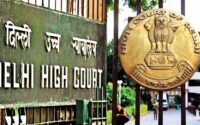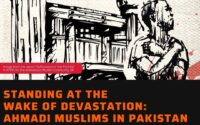The Turbulent Turning Of Panama Papers Leak Into Panamagate Graft Case; Supreme Court Of Pakistan Disqualifies PM Nawaz Sharif From Office
PANAMA PAPERS
The Panama Papers are the secrets of dirty money and an unprecedented leak of about 2.6 terabytes of data that includes approximately 11.5 million documents more than the combined total of the Wikileaks Cablegate, Offshore Leaks, Lux Leaks, and Swiss Leaks. The data primarily comprises e-mails, pdf files, photo files, and excerpts of an internal Mossack Fonseca, the world’s fourth biggest offshore law firm’s database. It covers a period spanning from the 1970s to the spring of 2016. With the anonymous source only interested in a few security measures to be complied with, shared the information with the German newspaper Süddeutsche Zeitung, who decided to analyze the data in cooperation with the International Consortium of Investigative Journalists (ICIJ). As months followed by, the leaked data continued to grow way beyond the original leak, making the leak the biggest that journalists had ever worked with. The ICIJ then shared them with a large network of international partners, including the Guardian and the BBC.
The data provides rare insights into a world that can only exist in the shadows. It proves how a global industry led by major banks, legal firms, and asset management companies secretly manages the estates of the world’s rich and famous: from politicians, Fifa officials, fraudsters and drug smugglers, to celebrities and professional athletes.
HOW PANAMA PAPERS CHANGED THE POLITICAL AIR IN PAKISTAN
On April 3, last year, when “Panama Papers” were leaked, “the Sharif” family was brought under undesired yet prominent limelight. These leaks in April 2016 revealed that three of Mr Sharif’s children owned offshore companies and assets not shown on his family’s wealth statement. The companies were allegedly used to channel funds to acquire foreign assets, including some apartments along Park Lane in London’s Mayfair area. On April 5, 2016, almost two days after Panama Papers leak, Nawaz Sharif, a former Prime Minister of Pakistan, under increasing political pressure said that “he is open to the formation of a judicial commission to probe his family’s alleged finances in offshore tax-havens”.
With the case in its infancy and a midst swelling political turmoil, Pakistan Muslim League (N) proposed the terms of reference (ToRs), which were rejected by the opposition leaders from the PTI, PPP, MQM, PML-Q who demanded the ToRs of any such commission to be drafted in consultation with them. After a joint meeting between opposition parties, a set of ToRs were presented to the government and the media, which was then rejected by the Government on the grounds that it was more focused on targeting the prime minister personally rather than eliminating corruption. This controversy circled into a deadlock when the Supreme Court returned the federal government’s request to appoint any inquiry commission to investigate the leaked document’s connection with the Sharif family.
The Supreme Court registrar Arbab Mohammad Arif in a letter sent to the law secretary said, “Formation of commission of inquiry under the Pakistan Commission of Inquiry Act 1956 (Act VI of 1956), looking to its limited scope, will result in the constitution of a toothless commission, which will serve no useful purpose, except giving bad name to it,”. The letter also observes that the ToRs of the proposed commission are so “wide and open” that “it may take years” for the commission to conclude proceedings.
The Panamagate controversy started making a more sorted way to Justice when, almost after four months of the mammoth leak, several petitions reached the Supreme Court of Pakistan. Among them was the one by Pakistan Tehreek-e-Insaf(PTI) of Imran Khan which was filed against 10 respondents, which include Nawaz Sharif, his daughter his son-in-law retired Capt Mohammad Safdar and Finance Minister Ishaq Dar for their alleged involvement in the Panamagate scandal. Jamaat-e-Islami and Jamhoori Watan Party as well approached the Pakistan’s Apex court with their petitions.
Meanwhile, opposition was going berserk, holding rallies and protests across the country. Where, Imran urged followers to put up ‘country’s biggest ever demonstration’, PTI protested outside Sharif residence, demanding Nawaz’s resignation and Islamabad lockdown were to be the major ones.
In November, the Supreme Court sought responses from both the petitioners and the Nawaz Sharif family. The court was then still considering whether or not to appoint a judicial commission to probe the Panamagate scandal. And the big question hovering was: how did Nawaz Sharif’s children pay for their London properties? As like a result of some magical wand, the PML-N counsel Mohammad Akram Sheikh pulls out a document dated Nov 5, 2016 — marked private, confidential and not to be disclosed to any party, except for the benefit of the courts of Pakistan — on the letterhead of Hamad Bin Jassim Bin Jaber Al Thani, who ruled Qatar from 2007 to 2013. With this letter, Prince Jassim of Qatar presented a different story trying to refine the confusion. However, the Supreme Court was not pleased to hear yet another explanation for how the Sharif family paid for its London properties, observing that both sides were doing their best to ensure that the court would eventually have to form a commission to decide the Panamagate case.
A break was put to the case, as Chief Justice Zaheer Jamali, member of the five-bench was scheduled to retire. The Apex Court stated that the Supreme Court of Pakistan, shall commence the arguments from both sides afresh and hearings shall resume from January 4, 2017.
As scheduled, Panamagate graft case started afresh. On January 12, 2017, two different money trails puzzled the bench and the prime minister’s counsel was asked to prove as to why there were inconsistencies in the prime minister’s speech in the National Assembly last year. “There are two different money trails before us. How did the money go from Jeddah and then to London? And how did the money go from Dubai to London and then Qatar?” the judge asked. On January 26, 2017, a second letter is floated by Hussain Nawaz’s counsel, ‘clarifying’ Sharif’s investment in Gulf Steel Mills. The letter is accompanied by transaction details and auditor’s reports regarding the Gulf Steel Mills in Dubai and the Azizia Steel Mills in Jeddah.
With every evidence, affidavits, arguments and witnesses statements, the case despite getting clearer was only getting blurred to vagueness. The Supreme Court on January 31, 2017 expressed its concern over NAB and Qatari letters. As the Pamanagate case hearing resumed, NAB Prosecutor General Waqas Qadeer Dar was called once again to the stand and questioned why the ruling in the Hudaibiya Paper Mills case was not appealed. During the hearing, the five-judge bench also questioned the absence of any mention of the Qatari investments in Prime Minister Nawaz Sharif’s speech in the National Assembly and in Tariq Shafi’s affidavit presented to the apex court. “We were told that all evidence had been made available, and that perhaps it was we who were unable to see it in its entirety,” said Justice Asif Saeed Khosa. Later on in February, despite the documents from the Panama Papers suggesting that the beneficial owner of the luxury central London flats was Mr Sharif’s daughter Maryam, she later claimed that she was only a trustee – and that it was her brother who was the beneficial owner. To prove her point, Maryam Nawaz produced a trust deed signed by both her and her brother dated February 2006. But a British forensic expert later said the document was “fake” or had been “falsified” because it was typed in the Calibri font, which was not commercially available until 2007. Justice Saeed expressed the bench’s frustration by saying that the lawyers were issuing different statements each time, which was confusing the bench. “If a story has been made up, you should stick to it,” he remarked.
Finally, on February 23, 2017, Panamagate hearings concluded with judgement awaited. On April 20, 2017, neither a clean chit, nor a conviction: Supreme Court issued split verdict on Panamagate case and ordered formation of joint investigation team (JIT) comprising Inter-Services Intelligence (ISI), MI (Military Intelligence), NAB, SECP and SBP officials.
The JIT submitted its report on July 10 after a 60-day probe in which it tried to establish the money trail for the assets acquired by the Nawaz Sharif family. The insinuation that the offshore companies were meant to hide or launder ill-gotten wealth or to avoid taxes called Mr Sharif’s credentials into question. In its report, the JIT told the Supreme Court that the Sharif family failed to reveal the source of income for the acquisition of their London apartments. It concluded that Nawaz Sharif and his family owned assets beyond the known sources of income.
On July 21, 2017, the Federal Investigation Agency (FIA) takes SECP Chairman Zafar Hijazi into custody in Islamabad after its investigation revealed he had allegedly altered records related to the Sharif family’s Chaudhry Sugar Mills. The SC also ordered Hijazi’s arrest in light of the FIA and JIT’s probe reports. Later, on July 28, the bench disqualified Nawaz Sharif from holding public office. The court ordered the Election Commission of Pakistan to de-notify the prime minister from his National Assembly seat to fulfill the technicalities of implementing the order. The Supreme Court said the ECP should de-seat the PM for not disclosing his role in the Dubai-based Capital FZE company in his nomination papers, saying that this meant he was not ‘honest’ and ‘truthful’. Pakistan Finance Minister Ishaq Dar was also disqualified by the court and the court has recommended anti-corruption cases against several individuals, including Mr Sharif, his daughter Maryam, her husband Safdar and others.
Pakistan has yet again repeated history with its 18th Prime Minister, the decision brought an end to Sharif’s third term in power, who if was not disqualified would have become the first Pakistani Prime Minister to complete a full five-year term.
PANAMA HUNTS DOWN ANOTHER LEADER
With this, Sharif becomes the second world leader to lose his post over his links to the Panama Papers; Sigmundur David Gunnlaugsson was forced to resign as the prime minister of Iceland shortly after his wife’s interest in an offshore company was revealed as part of the Panama Papers investigation in April, 2016. David Cameron came under intense scrutiny over his family’s tax affairs. Malta is still dealing with the political fallout.
REFERENCES
https://www.dawn.com
http://www.bbc.com
https://www.theguardian.com
By – Paridhi Shivhare,
Symbiosis Law School, Pune


